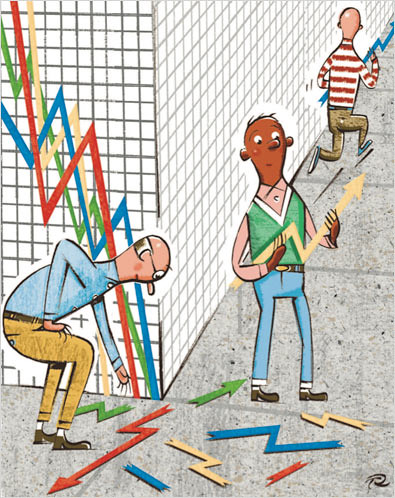Economy’s Woes Shift the Focus of Budget
By JACKIE CALMES
Recent signs that the economic recovery is flagging have introduced a new tension into the bipartisan budget negotiations.
The general assumption, which I have not shared, is that the money handed to banksters was meant to stimulate economic recovery to pre-2008 levels. I argued here that our non-bubble economy has shrunk and people become unskilled to the point that the trillions spent by Bush and Obama could only be intended to prop the status qvo ante. Why are people looking for reversing a trend? Because they were told so. Like in the past, except that our money is increasingly perceived as mostly backed by paper, by those who push gold above $15oo or switch from dollars to other currencies.
After the .com bubble there has been little in terms of sustainable economy that could use stimulus. Let's not forget, bubble money went into the real-estate and war economies. This had taken place while the effects of offshoring were masked by cheap (also subsidized) imports.
Some wake up now and ask for stimulus, yet others in the world have been awake, at least since the crisis in 2008. The latter are not willing to finance us anymore, hence the difficulty of dancing round the deficit vs. stimulus opposite poles.
I think those who fight deficits aim at accomplishing several things, of which one is ignored in the current debate: the external credibility of our system. I'm afraid that's been eroded and we are only seeing how people take calculated steps away from US. The recent Libyan episode is but an incomplete exception, which may itself prove to be temporary.
 So, while I can understand why there isn't and won't be a stimulus, I cannot understand why
So, while I can understand why there isn't and won't be a stimulus, I cannot understand why- People expect more stimulus, though it takes one to learn;
- People like Krugman call for more stimulus, since he's a learned man;
- The burden is not equally shared. By this, I mean the absence of higher taxation at the top, as in progressive tax. A VAT system, excluding those items that the lower income people depend on, may also be an option.
________________
A version of this has been posted at the NYTimes blog.











